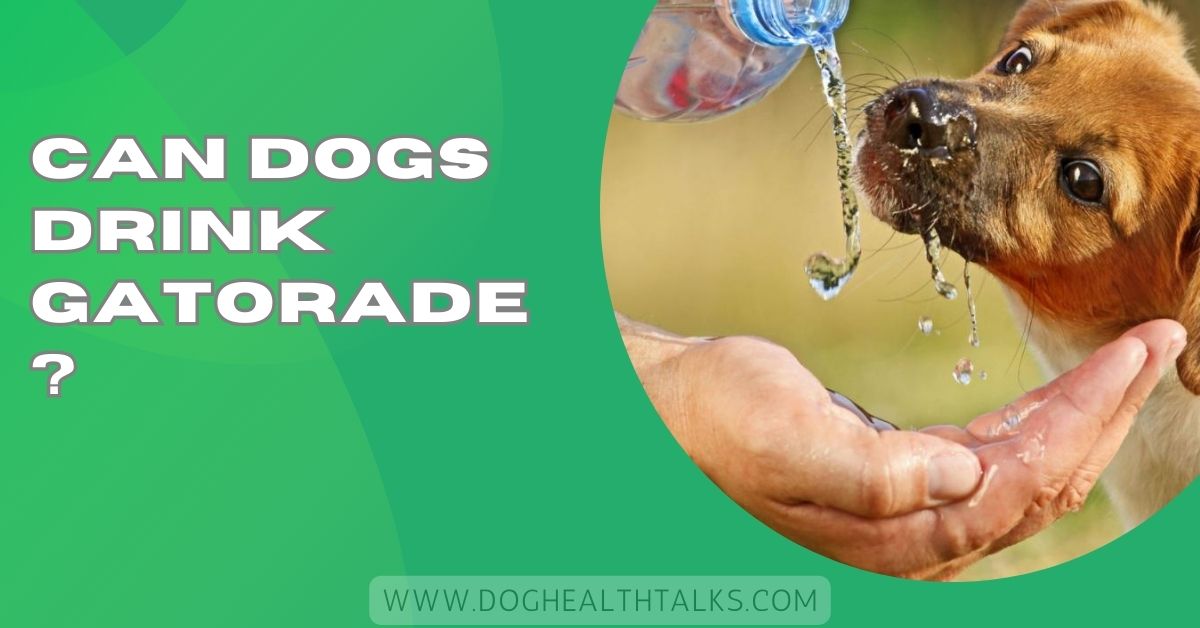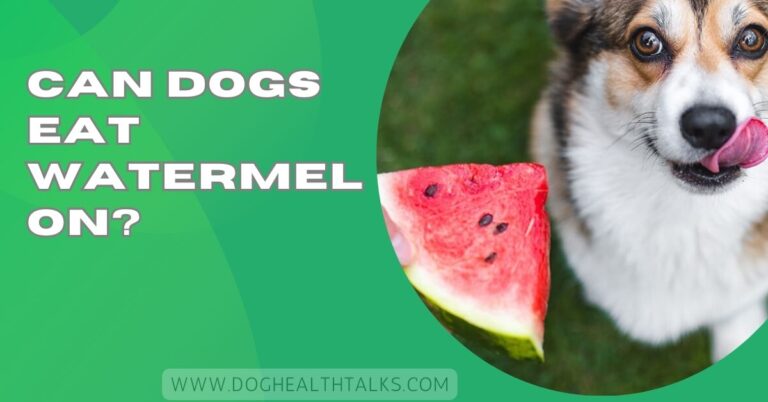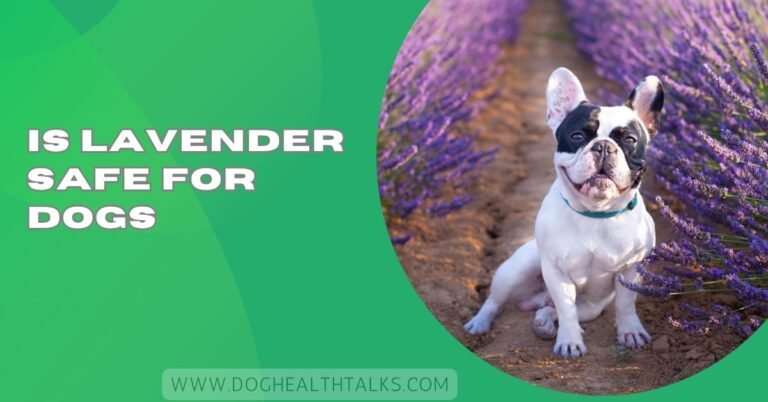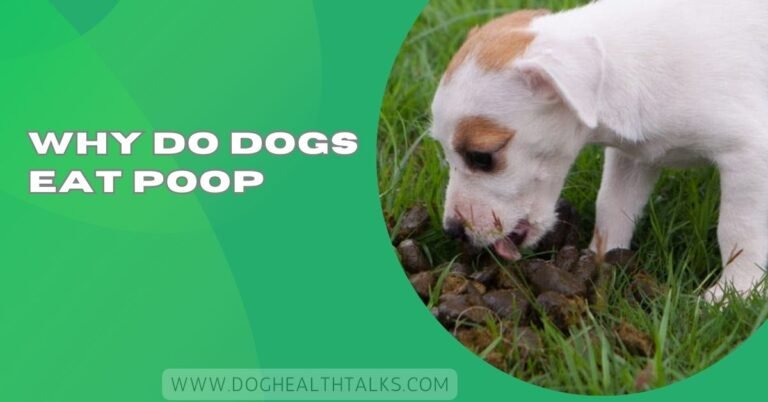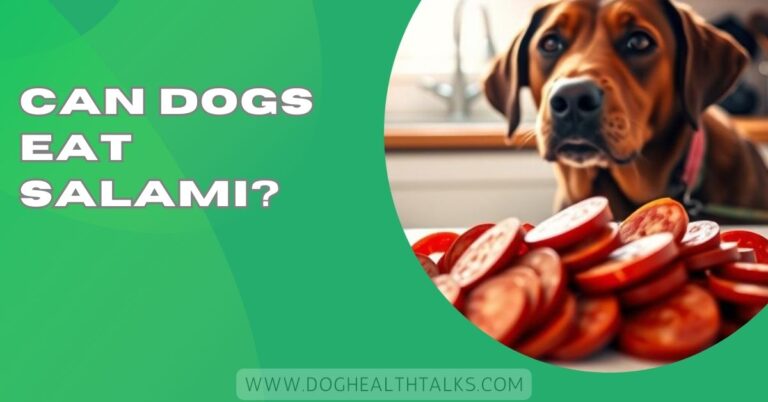Can Dogs Drink Gatorade? Owner’s Guide: Safe or Not!
If your dog looks thirsty on a hot summer day, you may wonder if giving them a splash of Gatorade is safe. While this sports drink works well for humans, dogs have different needs.
While Gatorade replaces electrolytes for humans, dogs don’t sweat like us—so they usually don’t need it. Its sugar, salt, and additives can harm them. Stick with fresh water, or use vet-recommended solutions when required.
Let’s explore whether Gatorade is safe for dogs, what they should drink instead, and how you can keep your furry friend happy and hydrated.
What Is Gatorade?
Gatorade is a sports drink made for humans, not dogs. It was created to help athletes replace fluids, sugar, and electrolytes like sodium and potassium lost during exercise.
Mixing water, sugar, and salt helps people recover after sweating, but dogs don’t need these extra ingredients. Their bodies are designed to stay healthy with fresh water alone.
While Gatorade may sound helpful, it isn’t built for a dog’s system and can sometimes do more harm than good. For dogs, clean water is always the safest choice.
Is Gatorade Bad for Dogs?

Yes, Gatorade can be bad for dogs if given regularly or in large amounts. The drink contains a lot of sugar, sodium, and artificial flavors that a dog’s body doesn’t need.
Too much sugar can upset their stomach and even lead to obesity or diabetes over time. Sodium levels can also reduce their natural balance, especially in small dogs.
While a tiny sip usually won’t hurt by accident, it’s not a safe or healthy drink for pets. Staying with fresh, clean water is the best way to keep your dog safe.
What Can Dogs Drink Besides Water?
For most dogs, plain water is the only drink they’ll ever need. It keeps them hydrated, supports digestion, and helps regulate body temperature.
If your dog is sick or mildly dehydrated, a veterinarian may recommend unflavored Pedialyte or a pet-specific electrolyte solution, but you should never give these without guidance.
Drinks like juice, soda, milk, or Gatorade are unsafe and can upset your dog’s system. The simple truth is that clean water, offered in a fresh bowl throughout the day, is the safest and healthiest option for every dog.
How To Keep a Dog Hydrated
- Monitor water intake: Notice how much your dog drinks daily. Too little can mean dehydration, while too much might signal illness. Tracking intake helps you catch problems early and keep them healthy.
- Hydrate during exercise: Bring water on walks or play sessions. Offer small breaks with sips, especially in warm weather. This prevents overheating, dehydration and keeps your dog safe and comfortable outdoors.
- Attend regular vet checkups: Routine vet visits help ensure your dog’s hydration and overall health stay on track. A vet can spot early issues and guide you with safe hydration tips.
- Provide shade: Always give your dog a cool, shaded spot to rest on hot days. Shade lowers overheating risks, keeps them comfortable, and encourages safe water drinking throughout the day.
Why You Might Be Tempted to Give Gatorade to Your Dog
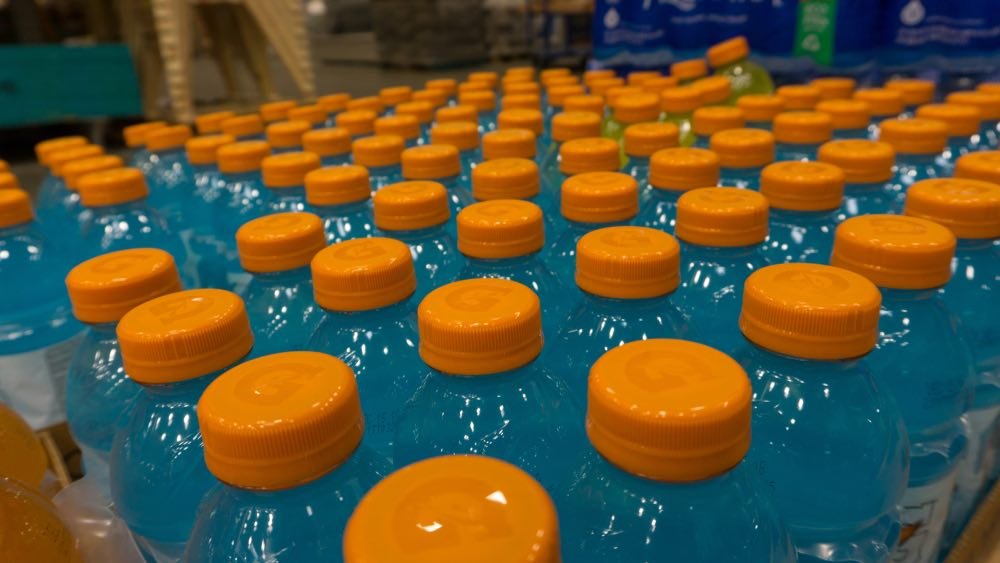
It’s easy to see why you might think of Gatorade when your dog looks tired or overheated. The drink is packed with electrolytes like sodium and potassium, which help humans recover after exercise or illness.
As pet owners, we naturally want quick fixes when our dogs seem weak, dehydrated, or stressed. Since Gatorade works for us, it can also feel like a safe option for them.
The thought usually comes from love and worry, but dogs have different nutritional needs, so what helps people often isn’t the right choice for pets.
Also Read: Can Dogs Eat Corn Chips? The Risks Every Owner Should Know
Why You Should Avoid Giving Your Dog Gatorade
While your intentions may be good, Gatorade isn’t safe for dogs. The high sugar levels can upset their stomach and lead to weight gain or diabetes over time.
Sodium content is also too high for their system, and some sugar-free varieties contain xylitol, which is deadly for dogs even in tiny amounts.
Artificial flavors and colors can also irritate sensitive stomachs or trigger allergies. Most importantly, dogs don’t need these extras—clean water is enough to keep them hydrated. Giving Gatorade might feel like a quick fix, but it can create more health risks than benefits.
Alternatives to Gatorade for Dehydrated Dogs
- Fresh, clean water – Always the safest and most effective way to hydrate your dog.
- Unflavored Pedialyte – Can help with mild dehydration, but only use it if your vet approves.
- Pet-safe electrolyte solutions – Products like Oralade are designed specifically for dogs and are safer than human sports drinks.
- Water-rich foods – Snacks like cucumber slices or seedless watermelon can naturally boost hydration.
- Veterinary care – If severe dehydration, your vet may provide IV fluids and proper medical treatment.
What to Do If Your Dog Is Dehydrated
1. Contact Your Veterinarian
If you suspect dehydration, call your vet right away. Severe cases need professional care, often IV fluids. Quick action can save your dog’s life, so don’t wait and hope they recover independently.
2. Offer Water
Encourage your dog to drink small amounts of fresh, cool water. Avoid letting them gulp too much at once, as it can upset their stomach. Gentle, frequent sips help restore hydration safely and effectively.
3. Cool Them Down
If heat caused the dehydration, move your dog to a shaded or air-conditioned area. Use cool—not ice-cold—water on their paws and belly. Lowering body temperature gradually is safer than shocking their system.
4. Prevent Future Dehydration
Always provide fresh water, especially during hot days or exercise. Carry a portable bowl when walking your dog, and offer water-rich foods. Staying consistent with hydration habits is the easiest way to prevent future dehydration.
Tips for Keeping Your Dog Hydrated
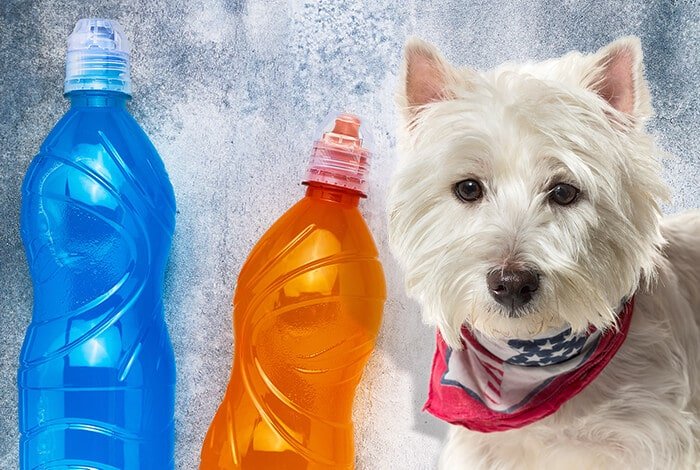
1. Provide Constant Access To Fresh Water.
Keep a clean bowl filled with fresh water available at all times. Dogs need regular access to stay hydrated, especially during hot weather or activity. Refill often to ensure the water is cool, safe, and inviting.
2. Choose The Right Water Bowl.
Pick a sturdy, non-toxic bowl that’s easy to clean. Stainless steel or ceramic bowls work best since they don’t hold bacteria or odors.
Avoid plastic bowls, which can scratch, harbor germs, and even cause allergic reactions in sensitive dogs.
3. Monitor Water Intake.
Pay attention to how much your dog drinks daily. Too little water may signal dehydration, while too much could indicate an underlying health issue. Knowing your dog’s everyday habits helps you quickly spot any unusual changes.
4. Encourage Hydration During Exercise.
Bring a portable water bottle or collapsible bowl on walks, hikes, or play sessions. Offer small amounts often instead of large gulps.
Keeping your dog hydrated during activity prevents overheating, fatigue, and dangerous heat-related health problems.
5. Offer Ice Cubes As A Treat.
Ice cubes are a fun, safe way to cool your dog down while keeping them hydrated. Most dogs enjoy crunching them, especially in summer. Just keep pieces small to avoid choking, particularly for smaller breeds.
Must Read: Why Dogs Cough After Drinking Water – Vet-Approved Guide!
6. Add Water To Dry Food.
Mixing water into your dog’s kibble makes meals more hydrating and easier to chew. This simple step helps picky drinkers get more fluids without noticing, and it also supports digestion and overall hydration throughout the day.
7. Provide Water-Rich Treats And Foods.
Fruits and vegetables like cucumber slices, seedless watermelon, or blueberries are healthy, water-rich dog treats.
They add extra hydration naturally while also delivering vitamins and fiber. Always double-check that the food is dog-safe before offering.
8. Create A Comfortable Environment.
A cool, shaded, and stress-free environment encourages better hydration. Keep your dog out of extreme heat, provide rest areas indoors, and avoid stressful situations that may reduce drinking. Comfort and calmness support consistent hydration and overall well-being.
9. Know The Signs Of Dehydration.
Watch for dry gums, thick saliva, sunken eyes, or skin that doesn’t spring back when gently pulled. Lethargy or refusal to drink are red flags. Recognizing dehydration early helps you act quickly and keep your dog safe.
What Else Can My Dog Drink Besides Water?
Dogs can drink plain broth with no salt, ice cubes, or vet-approved electrolyte solutions. Some dogs enjoy water mixed with a little wet food. Always keep drinks simple and safe. Avoid sugary, flavored, or artificial beverages meant for humans.
Absolute No-Go’s: Liquids That Are Toxic or Harmful to Dogs
Dogs should never drink alcohol, energy drinks, soda, coffee, tea, sports drinks, or anything with xylitol. Milk, juice, and salty drinks can upset their stomachs. Always stick to water and vet-recommended options to keep your dog safe.
Special Considerations: Puppies & Picky Drinkers
Puppies and picky drinkers need gentle care. They dehydrate faster and may refuse water when stressed or sick. Always offer clean, fresh water and ask a vet if drinking habits suddenly change.
What Can Puppies Drink Besides Water?
Puppies should mostly drink water, but they can have a little plain, unsalted broth or a vet-approved electrolyte solution when needed. Avoid milk or sugary drinks, as these can upset their sensitive stomachs.
My Dog Won’t Drink: What Can I Put in My Dog’s Water to Make Him Drink?
You can add a splash of low-sodium broth, tuna water, or a bit of wet food juice to encourage drinking. Keep it simple and gentle, and call a vet if dehydration continues.
Can Dogs Drink Gatorade Zero?
It’s best not to give your dog Gatorade Zero. While it has no sugar, it contains artificial sweeteners, which can upset your dog’s stomach or cause other health issues. Fresh water is always the safest and healthiest choice.
Can Dogs Drink Pedialyte?e
Dogs can sometimes have unflavored Pedialyte in small amounts for mild dehydration, but only under a vet’s guidance.
Flavored or sweetened versions aren’t safe. Always talk to your vet before using it, since underlying health issues may need professional treatment.
Read Out: Can Dogs Eat Raisins?: How to Act Fast and Save Their Life
Can Dogs Drink Gatorade For Diarrhea
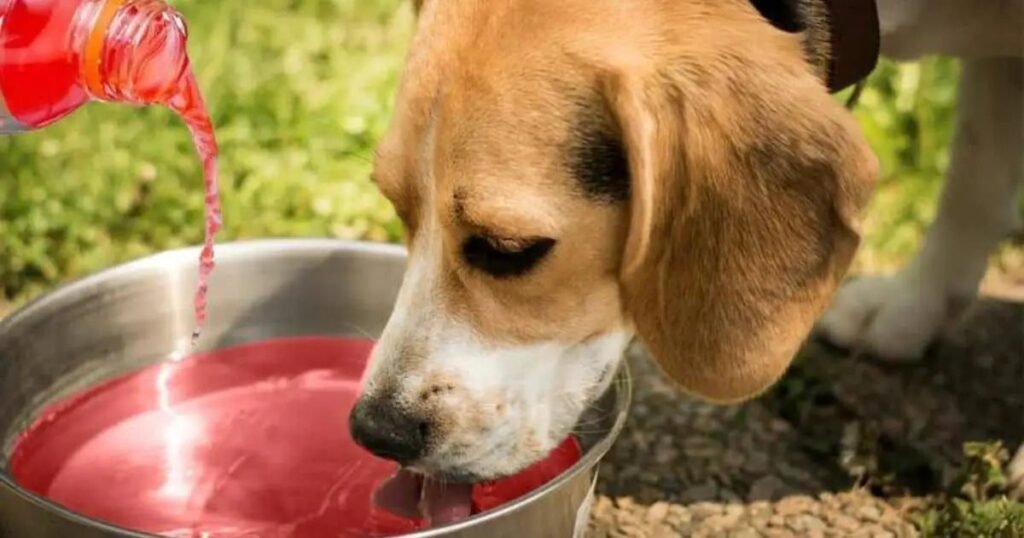
Avoid giving Gatorade for diarrhea. It doesn’t fix the cause and may worsen stomach upset due to sugar and additives. Instead, offer fresh water and call your vet for proper advice on rehydration and safe treatment.
Can Dogs Drink Gatorade When Sick
Gatorade isn’t recommended for sick dogs. It contains sugar, sodium, and dyes that can stress their system.
Sick pets need water and sometimes vet-approved electrolyte solutions. Always consult your veterinarian for safe care when your dog isn’t feeling well.
What Kind Of Gatorade Can I Give My Dog
No type of Gatorade is truly safe for dogs. Even small amounts may cause digestive upset or add unnecessary sugar and sodium. Stick with clean water or ask your vet about safe electrolyte options if your dog needs extra support.
Can Dogs Drink Gatorade Or Pedialyte?
Pedialyte is sometimes safe under vet supervision, but Gatorade is not a good dog option. It contains sugar, dyes, and additives that can harm them. Always check with your vet before using either for hydration.
Can I Give My Dog Gatorade For Parvo
Never give Gatorade for parvo. Parvo is life-threatening and requires urgent veterinary treatment, including fluids and supportive care.
Home remedies like Gatorade won’t help and may delay proper treatment. Contact your vet immediately if you suspect parvo in your dog.
Can Dogs Drink Powerade
Powerade, like Gatorade, isn’t safe for dogs. It contains sugar, sodium, and additives that can upset their stomach or harm their health.
Fresh water is the best choice. For special hydration needs, always follow your veterinarian’s guidance.
Can Dogs Drink Gatorade vs. Pedialyte
Dogs should not drink Gatorade because it has too much sugar and salt. Pedialyte is safer but should only be used with a vet’s advice. For most dogs, fresh water is always the best and safest hydration choice.
Can I Give My Dog Gatorade for Vomiting?
A vomiting dog should not be given Gatorade because it can worsen stomach upset. Offer small sips of water instead. If vomiting continues, contact a vet, who may approve a safe electrolyte solution designed for dogs.
What Kind of Gatorade Can I Give My Dog?
Vets do not recommend any type of Gatorade for dogs. Sugar-free versions can be dangerous, and regular flavors have too much sugar and salt. If hydration support is needed, only use a vet-approved electrolyte solution.
Can Dogs Drink Gatorade Water?
Mixing Gatorade with water still isn’t recommended because the sugar and salt remain. Even diluted Gatorade can upset a dog’s stomach. Always choose fresh water or ask your vet for a safe dog-friendly hydration option.
Would a “sports drink” like Gatorade or Powerade be harmful to a dog?
Yes, sports drinks like Gatorade or Powerade can be harmful to dogs. They contain too much sugar, salt, and artificial ingredients, which can upset a dog’s stomach and strain their health. Fresh water is always the safer choice.
FAQs
1. Does Gatorade Help Parvo?
No, Gatorade doesn’t help parvo. Parvo needs urgent vet treatment with fluids and medication. Home remedies can delay life-saving care.
2. How Do You Rehydrate A Dog?
Offer clean water, add water to food, or ask your vet about electrolyte solutions. Severe dehydration always requires professional veterinary care.
3. Can I Give My Dog Gatorade When Sick?
Avoid Gatorade for sick dogs. Its sugar and additives can upset their stomach. Fresh water or vet-approved fluids are safer.
4. Is Gatorade Okay For Dogs?
Gatorade isn’t safe for dogs. It contains sugar, sodium, and dyes. Always stick with water or vet-approved hydration solutions.
5. Can I Give My Dog Sugar Water For Parvo?
No, sugar water won’t help parvo. Only urgent veterinary treatment, including fluids and medical care, can save a dog’s life.
6. What can you give dogs to drink besides water?
Dogs can drink plain, low-sodium broth or vet-approved electrolytes. Keep drinks simple and safe to avoid stomach upset.
7. Can dogs drink other things besides water on a daily basis?
No, dogs should drink only water daily. Other drinks, even safe ones, should be occasional to avoid digestive or health issues.
8. What can I give my dog to drink besides water if they have an upset stomach?
Offer small amounts of plain, low-sodium broth or a vet-approved electrolyte solution. Always avoid sugary or flavored drinks.
9. Besides water what can dogs drink for a special treat?
Dogs may enjoy plain broth, melted ice cubes, or water mixed with a little tuna juice for a fun, safe treat.
10. What else can a dog drink besides water when it’s very hot outside?
Provide water with ice, plain broth, or vet-approved electrolytes to help cool them safely during extreme heat.
Conclusion
When it comes to keeping your dog hydrated, nothing replaces the safety and simplicity of fresh water. While drinks like Gatorade may seem like a quick solution, they contain sugars, sodium, and additives that don’t belong in a dog’s diet and can do more harm than good. If you’re worried about dehydration or your pet seems unwell, the best step is to consult your veterinarian for proper guidance. You can ensure your dog stays healthy, comfortable, and well-hydrated daily with clean water, safe hydration practices, and timely vet care.
